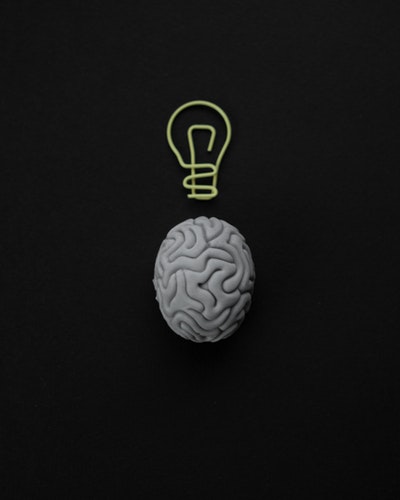5 Methods To Make Your Brain Sharper
The brain is the most complex subject to understand as it contains a vast amount of elements. The brain is also a core part of us to function well and it must be taken care of. People experience brain health issues also known as mental health illnesses. But there are methods to prevent any neurological or neurodegenerative disorders. As a person ages, the body and the brain begin to become more delicate. So, it is imperative one must maintain their health in order to function at their best. If a person does not prioritize to better or maintain their health every task will become difficult.
When the person ages, the individual’s brain becomes less plastic. This means the brain is not able to create new neural connections which can cause shrinkage of the brain. This can affect memory as well and this could lead to Dementia, Alzheimer’s, Parkinson’s, and other brain-related diseases. Even though cognitive decline occurs there are practices a person can incorporate into their daily life to prevent it. Brain-related diseases do not only affect brain functions such as memory and emotion. It is responsible for several operations: Communicating, motor skills (physical movement of muscles), awareness, and others. It is the organ that manages the body and mind. It is also called the central nervous system, so it processes everything to make one functional!
Practices to Maintain or Improve Brain Health
There are simple practices one can implement when wanting to improve brain health. Keep in mind the vessel (physical body) is just as important as the brain since they are together. It is pointless for a vessel to have no controller and vice versa for the brain. What is important for the body is also important for the brain (in the most part). Here are some straightforward applications:
- Sleep
- Exercise
- Dieting
- Engagement in Activities
- Meditation
To make the brain more flexible and plastic there needs to be some exposure to new developments, blood flow, diet, and rest. Sounds similar to producing muscle gains.

Sleep
Sleep is essential for the body and the brain. It is important for one to get rest for optimal function. Sleep deprivation can cause depression and other issues. Primarily what happens to people who are sleep-deprived lose volume in their brain. Especially, the synapse begins to get weaker in the number of connections between neurons. Also, the hippocampus (responsible for learning and memory) can decrease in volume, moreover grey matter reduces in the brain. Grey matter is involved in different regions of the brain such as muscle control, memory, and decision-making (Overall functions of what a person does daily)
If this were to decrease the individual will more likely to experience neurodegenerative diseases in the future. This is crucial since it can impair a person’s physical functions since the brain is the controller of the vessel (body). There is limited communication between the body and the brain. As mentioned before synapses get weaker when one does not get quality sleep. Sleep helps in the neuroplasticity process as it is able to alter the brain’s structure easily without distraction.
Exercise
When a person exercises, blood flows through the body and blood flow also goes to the brain. It initiates brain-derived neurotrophic factor (BDNF). Research has shown that a lack of neurotrophins weakens the brain’s functions such as focus, memory, and learning. Exercising consistently can elevate BDNF levels whether it’d be doing resistance training, dance, swimming, or anything considered physical exercise. In general, exercise provides stimulation that can initiate chemicals/hormones which are operated by the central nervous system.
To keep it simple it is best to remain active, so it can reduce the risk of brain health issues. When there is stimulation of ATK (which is in the brain) it promotes growth, improves memory, and synaptic connections, and enhances control over the body, and overall brain function.
If you would like a sample structure on exercise. Check out this post!
Dieting
What people consume also plays a factor in maintaining and developing brain health. As many may be aware consuming materials such as fruits, vegetables, or foods that contain Omega 3 fatty acids promotes brain health. Studies show that the brain consumes 20% of energy from nutrients since the demand for energy comes from the vital needs of neurons to maintain ionic gradients across their membranes to enable neurotransmission. Neurons are delicate to mitochondrial dysfunction and oxidative stress. What could possibly happen to a person are these:
- Vision and hearing problems.
- Kidney issues.
- Susceptable to infections.
- Seizures.
- Feeling weak.
- Digestive issues.
As mentioned before certain foods or beverages contain specific nutrients to help combat neurodegeneration. Here are some compounds that can be found in consumables and a practice where one can improve their health:
- Polyphenols
- Catechin Polyphenols
- Resveratrol
- Omega-3 Fatty Acids
- Caloric Restriction and Intermittent Fasting
When consuming and practicing these activities it can help protect the brain. But also improve other areas of the brain (hippocampus, grey and white matter), and let us not forget it can help rewire the brain (neuroplasticity). Consuming these foods can keep one young, attentive, and enhances their mood and memory. Here are some foods one may want to consider:
- Curry (Tumeric)
- Teas (Especially green tea)
- Berries, grapes, and other fruits. (Overall plant-based)
- Fish ( salmon, mackerel, herring, anchovies, menhaden, and sardines)
- Nuts
Engagement in Activities
When a person is learning or practicing a subject they are interested in the individual’s brain rewires itself. It could be something like art, or any other hobby. The person is learning the activity and is trying to improve on the skills. Primarily, the hippocampus function is in charge of learning and memory. It is plastic and it has the process of long-term potentiation which reinforces the connection of synapses between neurons. When one is engaged in activities it can better their memory which can combat cognitive decline. More importantly, avoid being stressed since it can harm the brain and the body. The hippocampus is a sensitive part of the brain and can alter the structure of the brain. There is also another part of the brain which is known as the amygdala. This is responsible for stress, fear, and emotion and it is a crucial part of the brain.
Meditation
Meditation is an excellent practice for the brain since it is a method to relax oneself. There is research that shows the brain changes structure (neuroplasticity). To those who regularly meditate there is evidence where there are increased number of synaptic connections. This is where neurons in the brain connect with neurons in the body. Meditation can alter the cortical thickness since this measures the health of the brain. When the cortical becomes thinner the individual can experience health issues such as neurodegenerative diseases. Although aging thins the cortical it is possible to slow down or reverse it with meditation.
Generally, meditation is beneficial for the body and the brain. It also helps with respiratory and emotion control. This is imperative since the human body needs oxygen. Fortunately, meditation decreases or calms the primary activity in the amygdala. If meditation is done properly it will help with a person’s overall well-being.

Wrap up
In conclusion, keeping one’s self healthy is keeping one alive. More importantly, the brain must be at its most optimal so the person is receptive to their surroundings or unforeseen challenges. The core components to better brain health are to rest, be active, eat healthily, and learn. These practices will help with slowing down aging and protecting the person from potential diseases. Ideally, if a person would like to improve their self the individual has to build strong habits. From there it will feel secondary which means whatever the person does it will feel effortless. Keep in mind the brain is always learning and adjusting.
Sources:
- The aging mind: neuroplasticity in response to cognitive training
- Meditation Experience Associated with Structural Neuroplasticity
- Exercise-Induced Neuroplasticity: A Mechanistic Model and Prospects for Promoting Plasticity
- Neural Plasticity Is Involved in Physiological Sleep, Depressive Sleep Disturbances, and Antidepressant Treatments
- Mitochondrial Disease
If you found this post helpful. Please consider sharing and subscribing :D!






